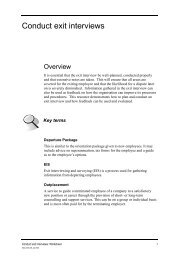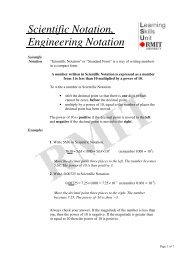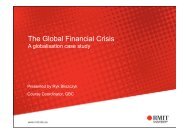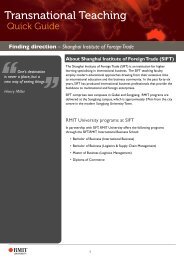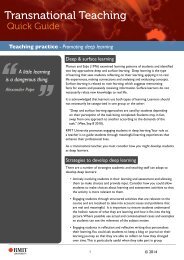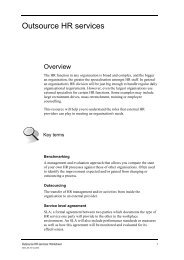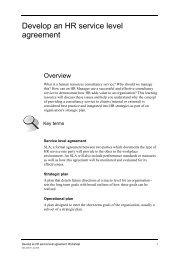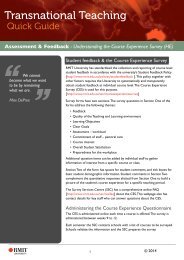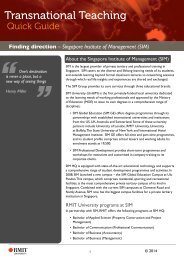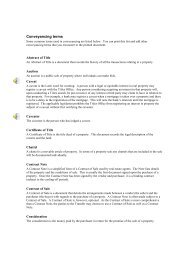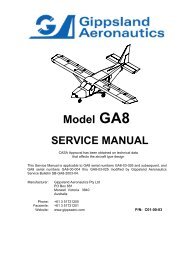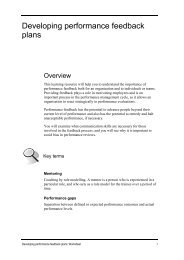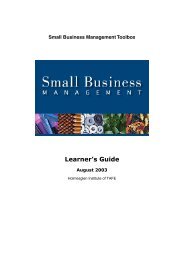Academic integrity & plagiarism - RMIT University
Academic integrity & plagiarism - RMIT University
Academic integrity & plagiarism - RMIT University
Create successful ePaper yourself
Turn your PDF publications into a flip-book with our unique Google optimized e-Paper software.
Plagiarism can take many forms (written, graphic and visual) and includes the<br />
use of electronic data and material used in oral presentations. Plagiarism may<br />
occur unintentionally, such as when the source of the material used is not<br />
correctly cited.<br />
What constitutes <strong>plagiarism</strong>?<br />
Under <strong>RMIT</strong>’s charter, students may be accused of <strong>plagiarism</strong> if they do any of<br />
the following:<br />
• Copy sentences or paragraphs word-for-word from any source, whether<br />
published or unpublished (including, but not limited to books, journals,<br />
reports, theses, websites, conference papers, course notes, etc.) without<br />
proper citation.<br />
• Closely paraphrase sentences, paragraphs, ideas or themes without proper<br />
citation.<br />
• Piece together texts from one or more sources and add only linking<br />
sentences without proper citation.<br />
• Copy or submit whole or parts of computer files without acknowledging<br />
their source.<br />
• Copy designs or works of art and submit them as their own original work.<br />
• Copy a whole or any part of another student’s work.<br />
• Submit work that someone else has done as their own.<br />
More detail on what constitutes <strong>plagiarism</strong> is found in the <strong>RMIT</strong> <strong>University</strong><br />
Policy on Plagiarism<br />
http://www.rmit.edu.au/browse;ID=sg4yfqzod48g1<br />
Students should also be made aware that it is unacceptable to enable <strong>plagiarism</strong>.<br />
Enabling <strong>plagiarism</strong> is ‘the act of assisting or allowing another person to<br />
plagiarise or to copy your own work.’<br />
Both plagiarising and enabling <strong>plagiarism</strong> are deemed to be misconduct and a<br />
serious academic offence under <strong>RMIT</strong> Student Conduct Regulations Part 2,<br />
Division 2 – <strong>Academic</strong> Misconduct<br />
http://www.rmit.edu.au/browse;ID=r7a7an6qug93<br />
Cultural differences & <strong>plagiarism</strong><br />
Transnational students may plagiarise material inadvertently because of<br />
differences in attitudes towards authorship and ownership. <strong>Academic</strong> and<br />
teaching staff teaching offshore must be aware of the following:<br />
Some cultures place different value on the western concept of ‘ownership’<br />
of an idea or intellectual property. In some cultures students are encouraged<br />
to memorise and use long segments from works by famous authors or<br />
experts. This practice of using the experts’ words without referring to them<br />
is construed as showing respect for the expert and is considered more<br />
appropriate than using the student’s own words (Song-Turner, 2008).<br />
Students students might also view ‘helping’ classmates do well as more<br />
important than competing with them. Consequently students may not<br />
2 © © 2014





